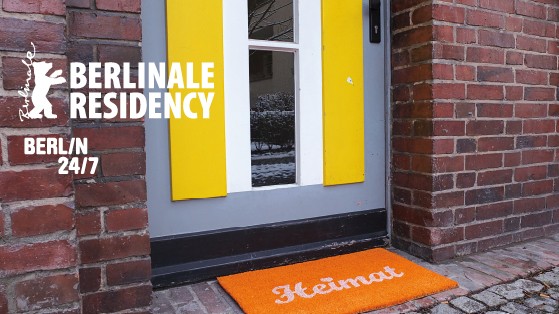2016 | Berlinale Residency
Berlinale Residency 2015 / 2016

The Berlinale Residency offered the filmmakers a great working atmosphere, monthly sessions with renowned script mentors and social events with fellow filmmakers. Their producers received input from widely experienced industry professionals and support in preparing and packaging the selected projects for the international market in a workshop towards the end of the Residency programme. The filmmakers and their producers returned to Berlin in February for the Berlinale Co-Production Market where they presented their project to potential co-producers and financiers.
In 2015 / 2016, the Berlinale Residency gave three filmmakers the opportunity to maximize the potential of their projects and to find their audiences, without limiting the creative qualities of the stories they want to tell. The writer/directors received three monthly grants of 1.500 Euro each, enabling them to live and work in Berlin for the duration of the programme.
A jury – made up of Jens Beiküfner (German Federal Foreign Office), Teresa Hoefert de Turegano (Medienboard Berlin-Brandenburg), Karsten Stöter (Rohfilm, Berlin) and Thomas Hailer (Berlinale Curator) – selected three filmmakers and their feature film projects.
Participants and Projects 2015 / 2016

Daniel Borgman, Fernando Eimbcke, Ella Manzheeva
Daniel Borgman, New Zealand / Denmark: Loving Pia
Producer: Katja Adomeit (Adomeit Film, Denmark)
Daniel Borgman was born in Dunedin, New Zealand in 1981. He received his degree in film studies at the University of Otago. Afterwards he moved to Europe, where he first worked as a post-production assistant and later as a film colourist and visual effects artist. In 2009 he began studying at the Super 16 film school in Denmark. His graduation project was an experimental live film/theatre happening titled How to Say Goodbye. His first short film, The Man & the Albatross, premiered in Locarno in 2008. A year later, his short Lars and Peter screened in the short film competition in Cannes. In 2010, his next short, Berik, won the Grand Prix in Cannes’ Semaine de la Critique short film section. His debut feature, The Weight of Elephants, premiered in the Berlinale Forum section in 2013. Loving Pia, developed in the Berlinale Residency, premiered in Berlinale Forum 2017.
Fernando Eimbcke, Mexico: Diary Of An Elephant
Producer: Christian Valdelièvre (Cinepantera, Mexico)
Fernando Eimbcke was born in Mexico City in 1970. He studied at the film school of the National Autonomous University of Mexico (UNAM). In 2003 he was invited to the Berlinale Talents Campus (called Berlinale Talents since 2014). In 2004 he celebrated his feature debut with Temporada de Patos (Duck Season). Following its world premiere at the film festival in Guadalajara, he was invited to the Semaine de la Critique in Cannes as well as numerous other international film festivals. His film Lake Tahoe screened in the Competition of the Berlinale in 2008, where it won both the Silver Bear Alfred Bauer Prize and the FIPRESCI Prize. Eimbcke also directed an episode of the portmanteau film Revolución that screened in the Berlinale Special in 2010. In 2013, he won top awards for his film Club Sandwich in both San Sebastián and Turin.
Ella Manzheeva, Russia: Tachal
Producers: Victoria Lupik (Anniko Films, Russia) and Elena Glikman (Telesto Film Company, Russia)
Ella Manzheeva was born in Elista, in the southern Russian Republic of Kalmykia in 1981. She first studied violin, then sound directing at the Saint Petersburg State University of Film and Television. Afterwards she studied directing at the High Courses for Scriptwriters and Film Directors in Moscow. In 2013, Ella Manzheeva was invited to the Berlinale Talent Campus (called Berlinale Talents since 2014). Her first fictional feature, Chaiki (The Gulls), premiered in the Berlinale Forum in 2015.
The Berlinale Residency was an initiative of the Berlin International Film Festival, supported by Medienboard Berlin-Brandenburg and the Federal Foreign Office.
The Berlinale Residency programme supported writer/directors from around the world, who had already enjoyed their first festival and cinema successes, in developing their new fiction, documentary film or cross-media projects. Only feature-length projects to which a producer was officially attached were eligible for selection.